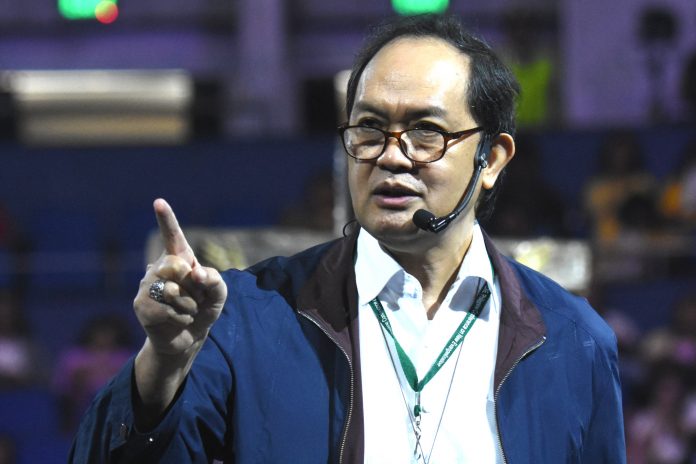When the Church is attempting to put up a State, or the State is trying to establish a Church, it is then that the Constitutional doctrine of separation of the two institutions is violated.
We have no intention of putting up a government; that’s not our field of expertise. We are just spiritual leaders and the only influence that we have is religious influence, not political influence.
We do not have political influence over the country’s Judiciary, nor do we interfere in the operations of government. Our only influence is on conscience, because it is our duty to form consciences, and we are accountable to God for this.
We draw inspiration from the both the Scriptures and the Magisterium of the Church.
From the Scriptures, we are reminded by St. Paul who says, in 2 Timothy 4:1-4: “I charge you in the presence of God and of Christ Jesus, who will judge the living and the dead… proclaim the word; be persistent whether it is convenient or inconvenient; convince, reprimand, encourage through all patience and teaching. For the time will come when people will not tolerate sound teaching but, following their own desires and insatiable curiosity, will accumulate teachers… But you, be self-possessed in all circumstances; put up with hardship; perform the work of one who proclaims good news; fulfill your ministry.”
From the Church’s Magisterium, we remind ourselves of what Pope Emeritus Benedict XVI said, in his teachings on Church and Politics.
In his opening address to the 5th General Conference of the CELAM in Brazil on May 20, 2007, he said, “The Church is an advocate of justice and of the poor precisely because she does not identify with politicians or with partisan interests. Only by remaining independent can she teach the great criteria and inalienable values, guide consciences and offer a life choice that goes beyond the political sphere. To form consciences, to be the advocate of justice and truth, to educate in individual and political virtues: that is the fundamental vocation of the Church in this area. And lay Catholics must be aware of their individual responsibilities in public life, they must be present in the formation of the necessary consensus and in opposition to injustice…”
As fellow citizens of this country, we are merely participating in the exercise of the freedom of expression of the citizenry, which we hope is still respected by our government authorities in the context of a functioning democracy.
We respect the Supreme Court as the highest body within our Judiciary, which is supposed to function independently of the other branches of government, if we are to continue to function as a democracy. What we hope and pray for is that both our Legislature and Judiciary remain truly independent, and continue to function as designed by our Constitution.
Bishop Pablo Virgilio David of Kalookan is acting president of the Catholic Bishops’ Conference of the Philippines.









